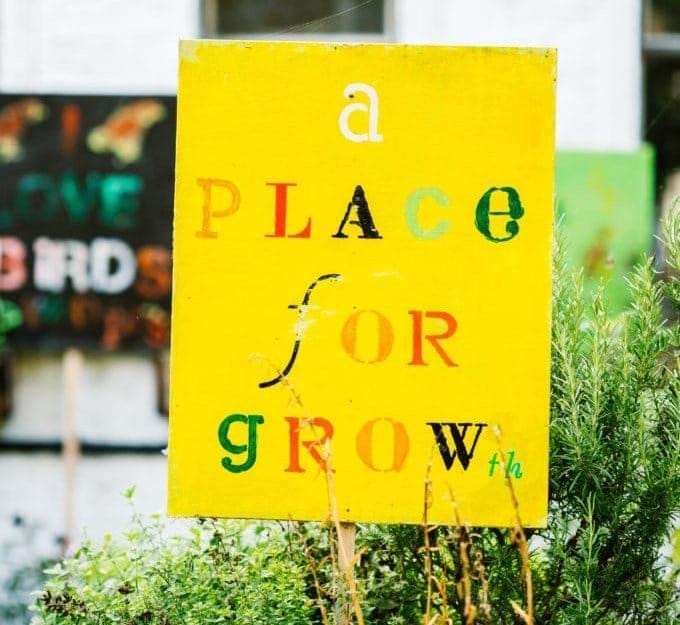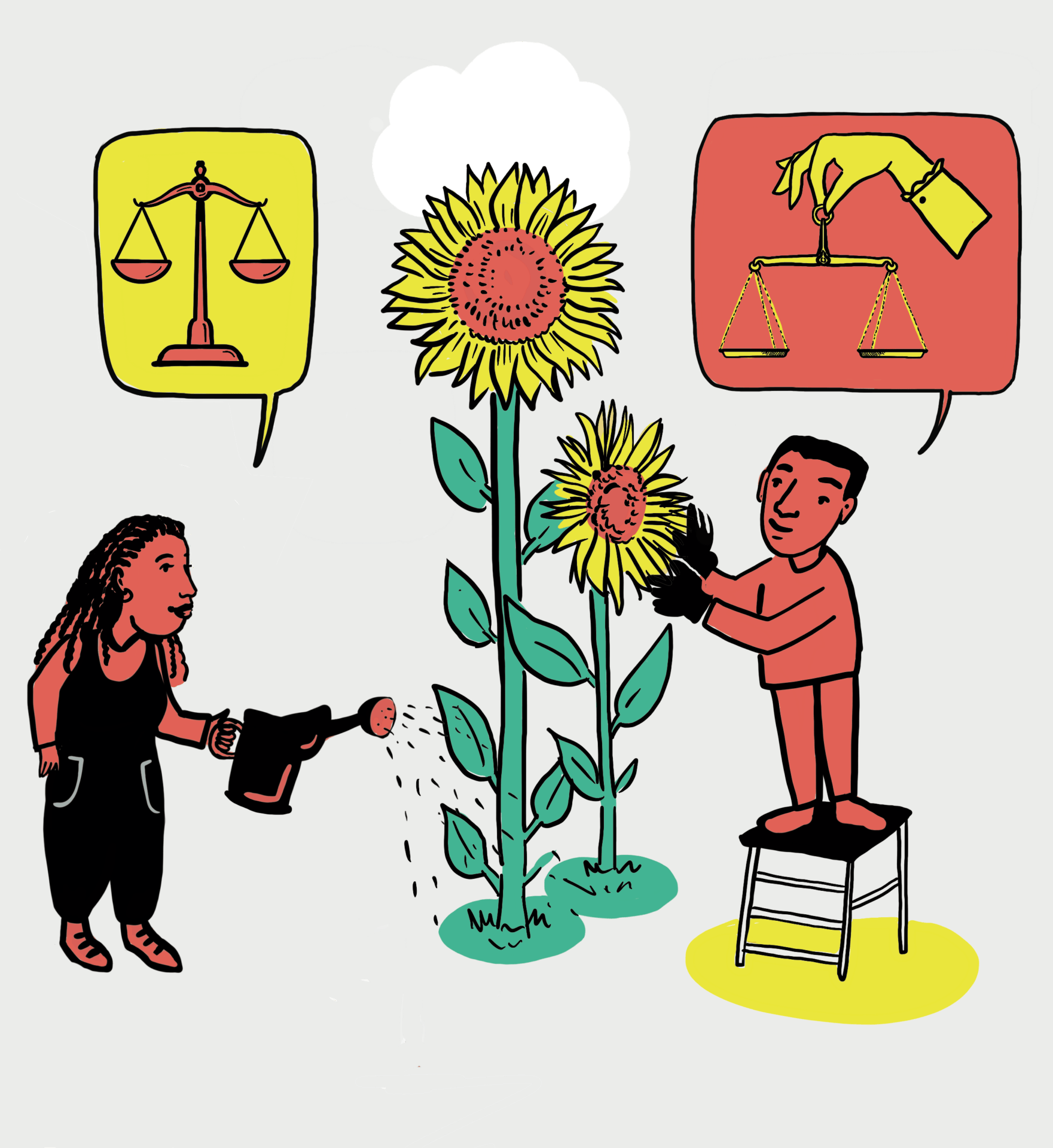19th November 2020, words by Julian Corner
Two years ago we acknowledged publicly that we didn’t know what effective governance at Lankelly Chase should look like. In particular, we were struggling to give our Board a clear enough picture of our relationship with – and effect on – complex interconnected systems. This mattered to us because we think the change we seek comes from the behaviour of those systems, not just from individual actions. The result was that our Board didn’t know how to assure itself we were doing a good job.
Since then, we have become increasingly alive to the dangers of this situation. It’s not just that our Board can’t measure our success, it’s that we aren’t grasping the extent to which we are reproducing rather than addressing systemic problems in our work. These systemic problems most obviously include power inequality, racial injustice and climate breakdown.
We are open about these dangers because we see them across the charity sector. Put starkly: many of us are attempting to solve social problems that have been created by systems of inequity while relying on strategies and business models embedded in those very systems.
Many charities have vision statements that suggest they want a very different socio-economic future, yet a superficial look at where the money comes from, who sits on boards, how decisions are made, who holds most influence, who seeks to represent disadvantaged communities, how success is measured, and how risk is viewed, reveals how many of us are enmeshed in the status quo.
To survive as a charity, you have to play by rules that sustain established power and wealth. The contradictions of this position get masked by the false certainties of regulation. We reassure ourselves that we are ‘sound’ by benchmarking ourselves against one another. In other words, the measure of a good charity is that it should look as much like other charities as possible. Not exactly fertile ground for change.
It is often said that charities should aim to put themselves out of business by solving the problems they were set up to address. This would be a fine principle if only charities weren’t dependent on the very systems that made their missions necessary. In saying this, I do not intend to blame. We are all part of the problems we are trying to solve. Iniquitous systems live in all of us, and they form a tightly woven web that leaves very little room for manoeuvre. Messing with systems of privilege, power, and wealth is a sure-fire way of putting yourself out of business, and not in a good way.
All of which leads me to the question: can charity ever be an effective means of ending social harms? I have in mind here Audre Lorde’s famous and wise warning: ‘the master’s tools will never dismantle the master’s house. They may allow us temporarily to beat him at his own game, but they will never enable us to bring about genuine change’.
As an endowed foundation, Lankelly Chase has more room for manoeuvre than most. We have £150m capital, which means our business model doesn’t collapse the moment we stop playing the game. We have concluded that with this privilege must come a responsibility: not to sit within business as usual but to open up less comfortable spaces where more transformative possibilities lie. Our wealth gives us just enough independence to do the work of disrupting how iniquitous systems show up in our ways of thinking, acting and being.
Of course, owning wealth is its own trap. It brings with it power, status and privilege that is hard to give up. It magnetically attracts to it those who feel entitled to power. It creates in some – especially those of us not used to wealth – a gnawing anxiety about using it well and responsibly. It allows a freedom to act that can be paralysing for those of us who aren’t used to such freedom. So using our independence to mess with the model isn’t a straightforward proposition, as we have discovered.
Here are some of the steps we have taken so far:
- Two years ago, our Board removed itself from making grant decisions, partly because this process was modelling inequities in power and privilege.
- Increasingly, decision-making power over funding is shifting from Lankelly Chase to people who are in the networks and fields in which we want to invest.
- Recently, we have drafted a racial justice accountability plan (to be published soon), at the instigation of Resourcing Racial Justice, which seeks to identify and repair harms we have caused and to centre racial justice in our work.
- Shortly, we will be changing how our capital is invested to disrupt our dependence on an extractive financial system.
We don’t view any of these as steps towards a better or more defensible philanthropic model. Rather, they are small imperfect disruptions in our relationship with business as usual, designed to open the space for difference. They aren’t part of a bigger plan, because we don’t know what a world liberated from unjust and oppressive systems would look like. Personally, I’d be surprised if philanthropy (if it still existed) bore a passing resemblance to its current practice.
When Lankelly Chase embraced the goal of ‘systems change’ we asserted that to change systems, we had to change ourselves. In saying this, we didn’t comprehend how fundamentally we embodied a harmful paradigm. The realisation has been slow and painful. Each of the steps outlined above has been fraught and uncertain, triggering reflex reactions. In the act of trying to change, we have repeatedly revealed our true colours.
An example of this occurred last year. We hosted a retreat looking at our approach to governance, inviting two dozen extraordinary people from our networks. We said we wanted openness, creativity, surprises and disruption. In fact, we over-designed the day to the point that our actions communicated the exact opposite. We came across as an organisation that was deeply wedded to the control and power it held.
Since that retreat, we have listened and reflected hard, with COVID-19 and the Black Lives Matter movement adding further impetus. At some point in that process our mental model shifted. We stopped trying to design the governance process into which we would recruit new people and started focusing on the people who – as trustees – would co-design our governance process. In the words of Jim Collins: “First who, then what”. Get the right people on the bus, then figure out where to drive it. This is the exact opposite of many approaches to governance, which are premised on the need to control. It recognises that ideas are embodied in people and in relationships.
Today is a milestone in that process as we announce the appointment of five new Trustees. These appointments, it is important to state, are not simply about diversifying our Board. Each brings an incredible track record of integrating and activating their learned, lived and practice experience to tackle systems of injustice and oppression. This is much more about building a team that can start to put our current wealth, privilege and status at the service of fundamental change.
In recruiting new Trustees, we – as in the current team – had to dig deeper to earn their trust in the integrity of our intentions. We had to think hard about what we are recruiting them into, and about the genuineness of our desire to shift power. We have spent a lot of time exploring mutual commitment and values with them. Several previous ‘red lines’ have fallen by the wayside.
The draft role description, against which they were recruited, is a measure of how differently we are viewing the Trustee role. As you’ll see, each line starts with an active verb, because we need a Board that is governing for change, not stability:
- Bringing together lived and learned experience
- Allowing for a deep understanding of our work and its relationship with wider drivers of change
- Acknowledging our place within a wider system and history of power and privilege
- Creating the conditions for great work to happen without trying to control it
- Managing risk to the organisation while recognising that others are likely to be carrying much greater risks
- Spreading the governance/oversight role well beyond the Trustee body
- Operating within the legal framework while pushing at its boundaries, including our duty to invest our endowment within the norms of investment practice
To give these actions room to grow, we have sought to disrupt some of our conventional rituals. For example, our recent Board meeting was an ‘open space’ for Trustees to co-create the agenda. Rather than the Executive packing it out with its own priorities, the open space enabled Trustees to explore the issues and priorities that were evident to them from looking through the papers. Inevitably the discussion went in much more exciting directions.
Explicit in this process is a commitment not to co-opt new Trustees into existing ways of working, which is the goal of most inductions. Their appointment changes who or what we mean by ‘we’. To support this shift, the Board now has a learning partner, who is walking alongside us all, observing and reflecting back power dynamics to ensure that the space keeps opening up for difference to emerge and be embraced. She will also help us record, communicate and reflect on this collective learning journey.
This is a small but important step, away from theorising governance towards action that intentionally shifts us into a less predictable space. As our Chair Myron Rogers says: “real change happens in real work”. I have framed all this in quite uncompromising terms because we want to be accountable for following through on our intention.
We are currently part of a collective inquiry, #BeyondTheRules, which is encouraging a bigger conversation about the purpose of governance and will be supporting others to experiment with organisational forms (see here, here and here). As part of this, we will share openly about our own process, missteps and breakthroughs. We will foreground more voices from our governance system. And we will seek to use our insights to create more space for others.



Comments (0)